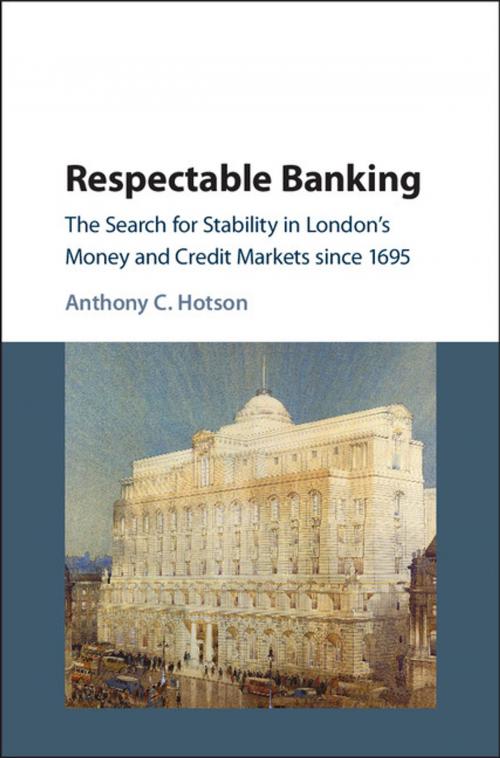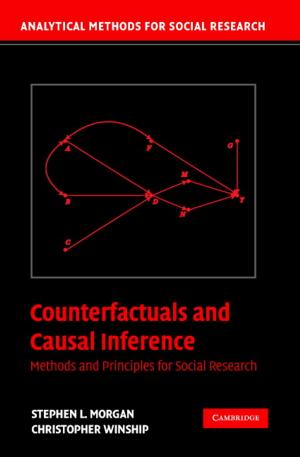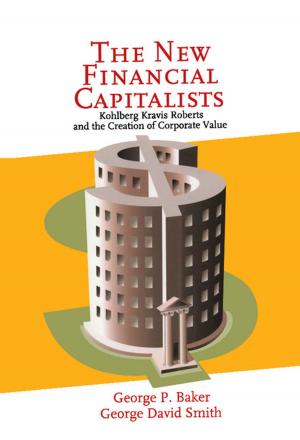Respectable Banking
The Search for Stability in London's Money and Credit Markets since 1695
Business & Finance, Economics, Macroeconomics, Economic History| Author: | Anthony C. Hotson | ISBN: | 9781108187596 |
| Publisher: | Cambridge University Press | Publication: | June 15, 2017 |
| Imprint: | Cambridge University Press | Language: | English |
| Author: | Anthony C. Hotson |
| ISBN: | 9781108187596 |
| Publisher: | Cambridge University Press |
| Publication: | June 15, 2017 |
| Imprint: | Cambridge University Press |
| Language: | English |
The financial collapse of 2007–8 has questioned our assumptions about the underlying basis for stability in the financial system, and Anthony Hotson here offers an important reassessment of the development of London's money and credit markets since the great currency crisis of 1695. He shows how this period has seen a series of intermittent financial crises interspersed with successive attempts to find ways and means of stabilizing the system. He emphasises, in particular, the importance of various principles of sound banking practice, developed in the late nineteenth century, that helped to stabilize London's money and credit markets. He shows how these principles informed a range of market practices that limited aggressive forms of funding, and discouraged speculative lending. A tendency to downplay the importance of these regulatory practices encouraged a degree of complacency about their removal, with consequences right through to the present day.
The financial collapse of 2007–8 has questioned our assumptions about the underlying basis for stability in the financial system, and Anthony Hotson here offers an important reassessment of the development of London's money and credit markets since the great currency crisis of 1695. He shows how this period has seen a series of intermittent financial crises interspersed with successive attempts to find ways and means of stabilizing the system. He emphasises, in particular, the importance of various principles of sound banking practice, developed in the late nineteenth century, that helped to stabilize London's money and credit markets. He shows how these principles informed a range of market practices that limited aggressive forms of funding, and discouraged speculative lending. A tendency to downplay the importance of these regulatory practices encouraged a degree of complacency about their removal, with consequences right through to the present day.















